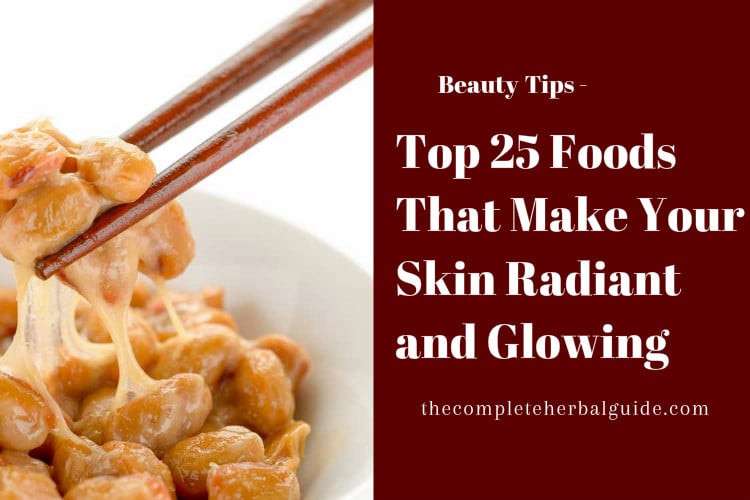
Benefits of Argan Oil: Top 12 Uses for Healthy Skin, Hair and Overall Health
Table of Contents
What Is Argan Oil?
Argan oil is a natural product sourced from the kernels of the Argania spinosa tree (a species native to Morocco). Rich in essential fatty acids and antioxidants (including vitamin E, polyphenols, linoleic acid, and sterols), argan oil is often marketed as an anti-aging aid for the skin. In addition, consumption of argan oil is said to help with certain health conditions.
Argan Oil Benefits
Skin Moisturizer
Argan oil is most commonly used as a skin moisturizer to hydrate and soften skin. With its high vitamin E and fatty acid content, argan oil is the ideal product to give skin a natural boost. It absorbs easily and is non-greasy and non-irritating, which makes it a great natural moisturizer.
It is easy to use all over the body, including the face and neck. Simply smooth a few drops into your skin using gentle rubbing motions, as you would any face and body lotion.
Hair Conditioner
hair-treatmentArgan oil is proven to make hair softer, silkier and shinier. It is the ideal hair conditioner, and it can even help to treat split ends and tame frizzy hair. Using argan oil to condition your hair is extremely easy. It comes in several types of applications and products and has so many ways to use it for different results that we decided to write an in-depth guide to use Argan oil for hair.
Great for Styling and Provides a Soft, and Vibrant Shine
Due to its ability to tame frizz and give hair shine, argan oil is also commonly used as a styling agent. It makes hair more manageable and adds a healthy, attractive shine to any hairstyle. This is an ideal step to add to your daily routine after blow-drying. Rub a few drops of argan oil over your palms and then comb your fingers through your hair to apply.
Anti-Aging
Not only does argan oil act as an effective moisturizer, but it can also give skin a youthful glow and reduce the visibility of wrinkles. Its anti-oxidant effect makes argan oil the ideal anti-aging product. It restores elasticity and leaves skin feeling plumper and softer.
The best way to apply argan oil for the most prominent anti-aging effects is to massage a few drops into your face and neck before bed. It acts as a moisturizer and anti-ager all in one.
Dry Skin Conditions
People suffering from dry skin or conditions such as eczema which can leave skin raw, flaky and itchy will benefit immensely from argan oil. The vitamin E and fatty acids in argan oil are excellent for repairing damaged skin and providing it with nutrients which will prevent further dryness and irritation. Argan oil also contains ingredients which soothe skin. Applying a small amount of oil directly to afflicted skin and massaging in gently can provide relief and encourage healing.
Acne
Where many oils and moisturizers can exacerbate skin conditions such as acne, argan oil actually soothes afflicted skin and promotes healing. Acne is often the result of oily skin. Since Argan oil is non-greasy, it helps to balance skin by providing natural moisture. Argan oil also contains anti-oxidants which help to heal damaged skin cells and reduce inflammation.
Applying a few drops of argan oil to skin afflicted by acne after cleansing and patting dry ensures that essential moisture and nutrients are introduced to clean, dry skin. Rubbing in gently and repeating twice daily can help clear up mild acne as well as balancing oily or dry skin.
Heals Skin
The antioxidants in argan oil are generally beneficial for healing skin which is irritated, cracked, damaged or even burned. It is best used as a preventive for dry or sore skin, but it can also be used to speed up healing. Its properties include reducing inflammation, soothing pain and increasing healing rate.
Smoothing a few drops of argan oil into sore or damaged skin helps to speed up the healing process.
Stretch Marks
Stretch marks are an issue for many pregnant women, but argan oil is the ideal protection against stretch marks and sagging, puckered skin after birth. Argan oil increases the elasticity of skin due to its vitamin E content. Using a few drops of argan oil to rub into breasts, stomach, bottom, and thighs during pregnancy will reduce the likelihood of developing unsightly stretch marks.
Argan oil is also ideal for keeping skin and hair soft, healthy and hydrated during pregnancy.
Hand, Nails and Feet Treatment
Argan oil’s softening properties are ideal for brittle nails, dry hands and cracked, hard skin on feet. It both moisturizes and softens skin, leaving hands and feet supple and soft and nails strong and healthy. Try massaging a few drops of argan oil into cuticles, hands, and feet before bed each night.
Lip Moisturiser
Especially in cold or dry weather, lips can easily become sore, dry and cracked. Argan oil is the ideal product to ensure lips stay plump, soft and supple. Rub a drop or two into dry lips as a balm – but be sure to wipe off any excess.
Sun Protection
Argan oil works as a high-quality sunscreen for your hair, neutralizing free radicals (unstable molecules that tend to wreak havoc in your body) enhanced by the natural environment and sun. “The antioxidants found in argan oil are especially beneficial for color-treated hair to prevent loss of pigment and extend the life of your color. An easy way to introduce using argan oil as a sun protectant it is by adding one to two drops and lightly running your fingers through your hair after styling or just adding it to the ends.
Encourage Hair Growth
Phenols are found in argan oil, which is very stimulating to the scalp, it can help to promote new hair growth. The best way to reap these benefits is in tandem with a hair loss treatment. Massaging the oil into your scalp for several minutes a day to stimulate blood flow and open the pores.
Studies on Health Benefits of Orally Ingested Argan Oil
Some proponents suggest that consumption of argan oil can help treat or prevent certain health conditions, including osteoarthritis, high blood pressure, diabetes, and atherosclerosis.
To date, few scientific studies have tested the effects of argan oil. While there is a lack of research on argan oil’s benefits for skin, hair, and nails, preliminary studies indicate that argan oil may enhance health when taken orally.
Insulin Resistance Studies
In tests on rats, for instance, scientists have shown that consumption of argan oil may fight insulin resistance, protect against obesity-related health problems, and lower blood pressure.
Heart Disease Studies
One of the few clinical trials to test the potential benefits of argan oil, a 2005 report from Nutrition, Metabolism, and Cardiovascular Diseases found that use of argan oil supplements may aid in the prevention of heart disease.
For the study, 60 young men consumed 25 ml of either argan oil or extra virgin olive oil every day for three weeks. Study results showed that both oils helped improve participants’ antioxidant status (an effect that could help reduce cardiovascular risk, according to the study’s authors). In another human study, oral argan appears to improve the lipid profile of people undergoing dialysis.
Anti-Seizure Effects
A study in rats found that argan oil may have anti-seizure activity. In these studies, it appeared to have actions on the hippocampus in the rat’s brains which both increased the threshold for seizures (made them less likely to occur) and decreased the risk of death for rats which experienced status epilepticus.
Burns
Topical argan oil has found to have some benefit in the healing of second degree burns in rats, and it’s recommended that argan oil be studied (along with silver sulfadiazine) for the treatment of burns in humans.
More research is needed before the consumption of argan oil is recommended for the prevention or treatment of any health condition.
Possible Side Effects and Interactions
There are several reports in the literature of argan leading to a rash (contact dermatitis.) Side effects related to oral usage are uncertain as few human studies have been conducted.
Some supplements such as the tocopherols present in argan oil may increase the bleeding time (and should not be used for people on blood thinners,) but it’s not known whether or not this would be a problem with argan oil alone.









